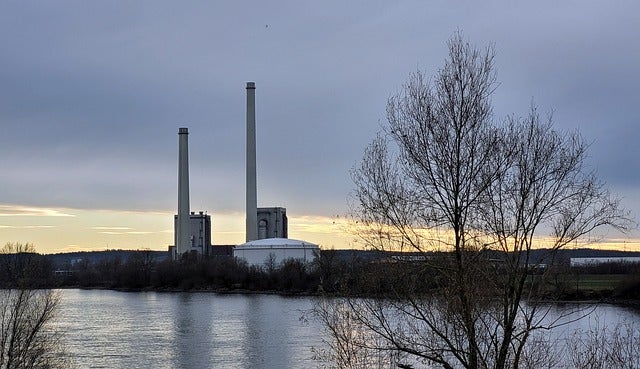
One of the principles of supply security is to diversify supply sources and reduce dependence on imports, yet in the supposedly forward-looking competitive European energy market supply security has essentially been provided by Russia with Europe’s largest economy, Germany, having the greatest dependence on Russian energy resources.
Historically, Europe has done nothing to address this dependence, with Europe’s strategy to phase out coal plants to support its decarbonisation ideology and its antipathy toward nuclear only serving to increase its growing dependence on natural gas, which would have been satiated by Russia’s Nord Stream 2 gas pipeline that was already constructed and the certification process commenced before the USA strong-armed a somewhat reluctant Germany into ditching the pipeline as Russian troops amassed on Ukraine’s borders.
That it has taken a war in Europe for the EU to finally address its Russian energy dependence exposes the political naivety of the Russophiles in Brussels and Berlin. While the USA and the UK have been quick to sanction Russian interests and impose embargoes on Russian energy, although neither country has little direct reliance on Russian imports, the EU has dragged its feet. In the first month of the Ukraine war EU aid to Ukraine was just under €6 billion while the value of EU imports from Russia was almost €22 billion.
At the insistence of Germany, which is dependent on Russian coal, the EU embargo on Russian coal has been delayed to 10 August and the oil embargo was only approved by excluding pipeline supplies, while Ukraine’s calls to Germany to end gas supplies through Nord Stream have been met with closed ears in Berlin. It is insulting that Brussels talks up its support towards Ukraine, yet the bloc is funding Moscow’s war machine through its purchase of Russian energy. Even when Moscow upped the ante in April and demanded payment for its gas sales in roubles, most European buyers acquiesced. Europe remains the tail that the Russian dog wags, with French President Emmanuel Macron having the temerity to call on the west to avoid humiliating Russia in Ukraine and reiterating his belief that Russian leader Vladimir Putin must be given an exit from what he called his “historic and fundamental mistake” of invading Ukraine.
The historic and fundamental mistake is Europe’s dependence on Russian energy and in May the Commission published its REPowerEU strategy with the twin objectives of ending Europe’s dependence on Russian fossil fuels as quickly as possible, in principle by 2027, with a two-thirds cut in Russian gas consumption by the end of 2022, and securing the long-term sustainability, cost-effectiveness, and energy supply to the EU energy system through a controlled departure from this long-entrenched relationship with Russia.
Essentially, meeting the near-term Russian gas independence target will involve filling Europe’s gas storage to 90% capacity by the start of winter and increasing LNG supply, while the short to medium-term objectives will be achieved by accelerating the renewable energy transition, delaying the planned coal-plant phase-outs, and where possible by extending the lifetime of nuclear plants and building more nuclear capacity. Yet this strategy, commendable as it is, could and should have been put in place a decade ago.
A similar observation can be made with respect to Germany’s response. After years of dithering on LNG the German government submitted a legislative proposal in May to speed up the permitting process and construction of onshore and floating LNG terminals, as well as the necessary pipelines to connect them to the grid. Germany has set out a timeline of achieving independence from Russian gas by the middle of 2024 by switching to LNG.
There are two problems with this rushed-out strategy; there is insufficient LNG regasification capacity in Europe to displace Russian gas imports and insufficient spot LNG cargoes to meet the increased demand; and second, a delay to the phase-out of coal will increase Europe’s generation emissions which could be exacerbated by the Commission’s proposal to sell over 200 million allowances from the Market Stability Reserve to help finance the transition which is bearish on EU carbon prices and dilutes the financial incentive for emissions reduction.
Europe will be switching from a gas model where current supply is mostly secured through Norwegian and Russian pipeline imports, and supply flexibility provided by LNG imports and storages, to a model where Norwegian pipeline gas and LNG imports will provide the security. While the USA agreed to increase LNG cargoes to Europe, and Germany has entered into an LNG agreement with Qatar, Europe will be predominantly competing with Asia for spare LNG cargoes which will almost certainly increase cargo prices that will be passed through in wholesale prices and impact affordability.
Extending the operation of coal plants and diluting the financial incentive to reduce emissions by flooding the EU ETS with allowances from the Market Stability Reserve will also have a negative impact on short-term sustainability, while subsidising the accelerated renewable transition will either be passed through in higher non-commodity costs in electricity tariffs or by general taxation. Either way, energy affordability will be impaired.
Returning to the three energy strategy pillars of affordability, security, and sustainability; there is a risk that Europe’s rush to rid itself of Russian energy resources will reduce both affordability and sustainability by switching from Russian supply security to a more costly alternative. This will be the cost of Europe’s historic and fundamental mistake in depending on Russian energy supplies.
This article first appeared in Modern Power Systems magazine.






